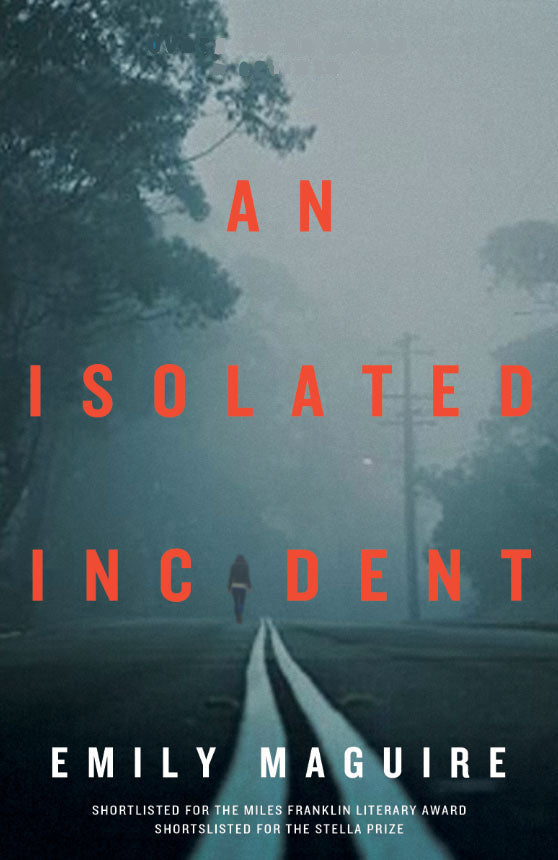Eye Books is a small, independent publisher championing extraordinary stories and overlooked voices since 1996. We publish bold fiction and non-fiction, work closely with our authors, and take pride in bringing unique books to adventurous readers.


‘Superb writing. Read her!’ Ann Cleeves
SHORTLISTED: Miles Franklin Literary Award
SHORTLISTED: Stella Prize
SHORTLISTED: Ned Kelly Prize for Best Crime Novel
SHORTLISTED: Australian Book Industry Awards
When 25-year-old Bella Michaels is brutally murdered in the small town of Strathdee, the community is stunned and a media storm descends.
Unwillingly thrust into the eye of that storm is Bella’s beloved older sister, Chris, a barmaid at the local pub, whose apparently easygoing nature conceals hard-won wisdom and the kind of street-smarts that only experience can bring.
An Isolated Incident is a humane and beautifully observed tale of everyday violence, the media’s obsession with pretty dead girls and the myth of closure.
‘Utterly engrossing. Rather than creating a simple case of goodies and baddies, Maguire subtly examines the complexity of the human personality. This hugely chilling and evocative story, mixing lyrical language and brutal events, is told with great psychological acuity’ Sydney Morning Herald
‘This is a harrowing, fascinating, compelling work from an accomplished and thoughtful Australian writer who uses the vehicle of a young woman’s death to question and explore society’s treatment of women, the everyday violence it condones and its intrusive fascination with the murder of pretty young women’ The Australian
‘This is far more than a page-turning crime drama, though it is also that. Maguire’s focus is on those left behind, the often unacknowledged victims of violent crimes. It is a nuanced portrait of a group of flawed characters, male and female, responding to a tragedy’ Newtown Review of Books
UK postage is free if you spend £20 or more
